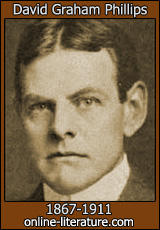Henry Fielding Quotes
'Love in Several Masques' (1728) act 4, sc. 11
The slander of some people is as great a recommendation as the praise of others.
Henry Fielding, Arthur Murphy, James P. Browne (1871). “Preface. Essay on the life and genius of Henry Fielding, esq. Love in several masques, a comedy. The temple beau, a comedy. The author's farce; with a puppet shew, called The pleasures of the town. The coffee house politician; or, The justice caught in his own trap, a comedy. The tragedy of tragedies; or, The life and death of Tom Thumb the Great”, p.186
I am content; that is a blessing greater than riches; and he to whom that is given need ask no more.
Henry Fielding (2012). “Joseph Andrews”, p.112, Courier Corporation
Henry Fielding, Arthur Murphy, James P. Browne (1871). “The letter writers; or, A new way to keep a wife at home, a farce. The Grub-street opera. The lottery, a farce. The modern husband, a comedy. The mock doctor; or, The dumb lady cured, a comedy. The Covent Garden tragedy. The debauchees; or, The Jesuit caught, a comedy. The miser, a comedy”, p.435
It hath been often said, that it is not death, but dying, which is terrible.
Amelia bk. 3, ch. 4 (1751)
We are as liable to be corrupted by books, as by companions.
John Osborne, Henry Fielding (2011). “Tom Jones”, p.7, Oberon Books
'Amelia' (1751) bk. 9, ch. 4
Henry Fielding (1861). “The Miscellaneous Works of Henry Fielding: Amelia”, p.407
A good heart will, at all times, betray the best head in the world.
Henry Fielding (1857). “The history of Amelia, with illustr. by Phiz”, p.45
It is much easier to make good men wise, than to make bad men good.
Henry Fielding, Thomas Roscoe (1851). “The Works of Henry Fielding: Complete in One Volume”, p.28
Henry Fielding (1832). “The History of Amelia”, p.150
Henry Fielding (1780). “The history of Tom Jones, a foundling”, p.71
Public schools are the nurseries of all vice and immorality.
'Joseph Andrews' (1742) bk. 3, ch. 5
Henry Fielding, Arthur Murphy (1814). “The Works of Henry Fielding, Esq: With an Essay on His Life and Genius”, p.79
Custom may lead a man into many errors; but it justifies none.
Henry Fielding (1824). “The Works of Henry Fielding, with a Life of the Author: Plays”, p.199
The highest friendship must always lead us to the highest pleasure.
Henry Fielding (1811). “The History of Amelia”, p.191







